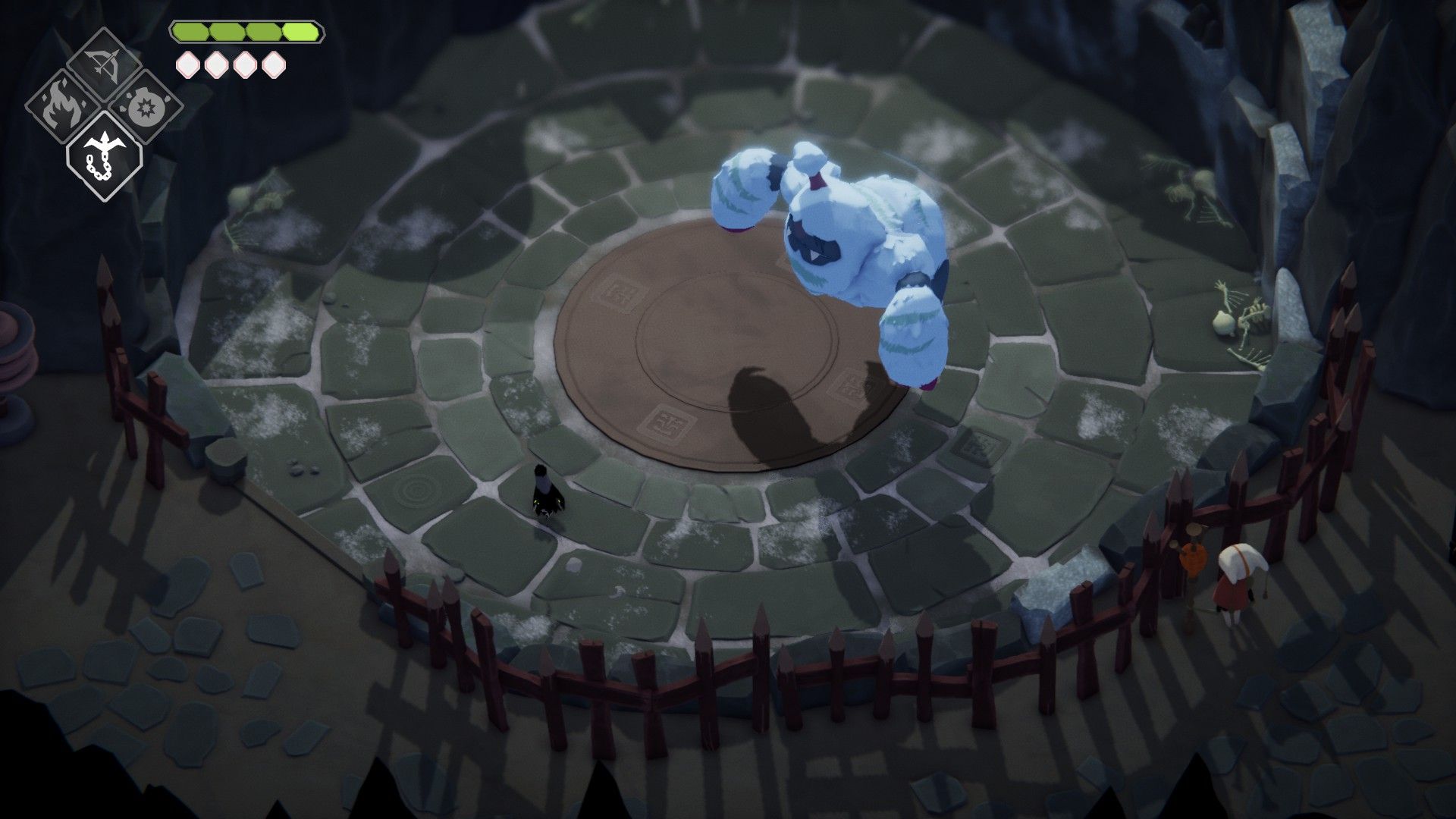Birds of a feather, uh, capture rogue souls, I guess. It’s Death’s Door! Brendy Caldwell: You are a feathered reaper of souls in this Zelda-like adventure, the silent crowtagonist of a light-hearted tale that regards death with a tickled smile. You’ve got a sword, a bunch of dungeons and a cadre of coy bosses with inviting attack patterns. Off you pop on a fighty stroll through a world of roly-poly baddies and grannies with a severe gaze. In other words, it’s Sunday afternoon single-player bliss. In our swirling ecology of battle passes that reward varying degrees of frenzied bulletmurder, it’s calming to start a colourful runabout that will ask no more of you than competent swordsmanship and the ability to roll. Well, there’s a little more to it than that. But not much. You can fire arrows, for example, or use a hookshot to close the distance on enemies. Some abilities you don’t earn until later, but they come at a fair pace, and unlock new areas as well as making fights against irritable wizards more varied. You’ll also need those powers to beat bosses (eg. royal frog, enraged Yeti, disappointed grandmother). Some of these have puzzley solutions, others simply demand dexterity and perseverance. And it feels good. Sometimes you find a game that doesn’t necessarily push genre boundaries but adheres to those boundaries in its own special way. Here you’ve got a top-down dungeonworld with melee and ranged combat, with a style of movement any Hyper Light Drifter player will recognise. But the rhythm of its fights, the deflecting of bombs, the balancing of sword swings and arrow shots - it all hangs together to create a prime example of taut, focused combat design. That’s not even counting the puzzles or the glib comedy of its dialogue. This type of game is rare. I think of it as the SteamWorld Dig 2 phenomenon, when a studio can create an expertly crafted game totally within the limitations of its genre, and make it beatable in just a few days of leisurely play. If games boasting 80+ hours of open world questing are the equivalent of five-season-long TV shows that lose steam after the first season, then Death’s Door is a three-part miniseries with good writing and an actual ending. And that writing really adds something. When bosses die, they are given a short funeral by a masked gravedigger. There’s the briefest hint of melancholy to their loss, an admission between jokes that this world is a little less colourful without a jerk like the Frog King in it, even if it is a fundamentally improved place. There is at least one boss that feels faintly tragic, and in a way it would be better if your quest to fix this world wasn’t necessary. But the little crow of death is inevitable. In the same way Outer Wilds smiled and shrugged at the end of the universe itself, Death’s Door treats individual death as a convivial obligation. Come along, it seems to say, time to die. Katharine: I came to Death’s Door very late in the year compared to Brendy, who did our excellent review of it back in July, but golly, what an absolute gem this is. I sometimes struggle with Soulslikes, no matter how far removed they are from their actual, rockhard namesake, but as I told supporters just the other week, Death’s Door is 100% my kind of game. The combat is delicious. Your sword swings and dodge rolls are tight and taut in all the right ways, and bosses are hard but also incredibly fair. It doesn’t aim to punish you - it wouldn’t have checkpoints immediately before those big boss rumbles if it did - but rather coaxes and cajoles you into doing a bit better next time. There are also plenty of clever secrets to unearth if you want to go looking for them, and gosh, the music is just wonderful. Don’t sleep on this one, folks.
